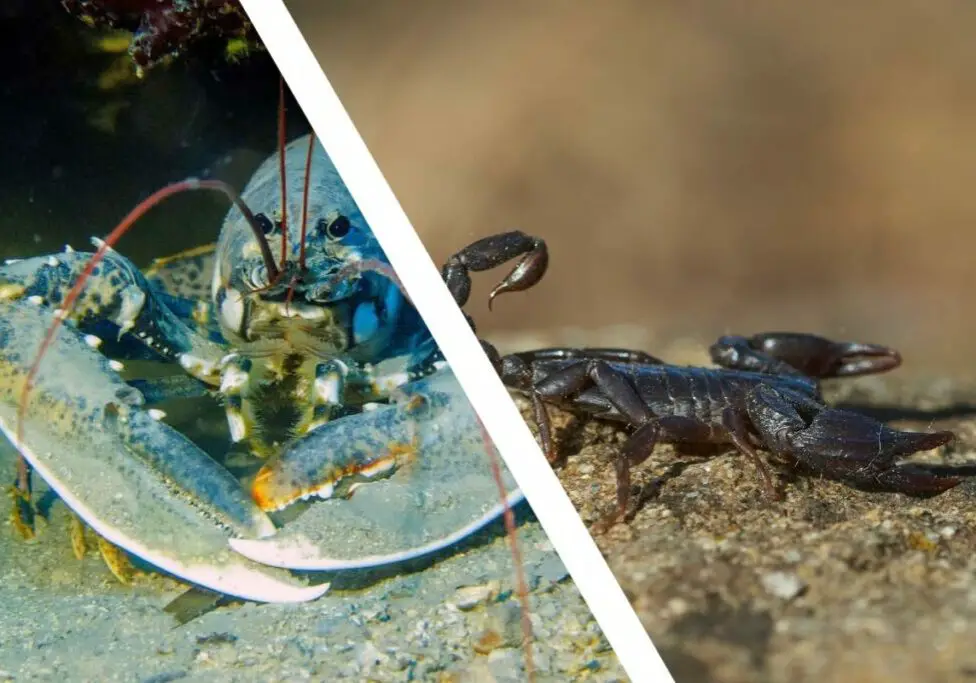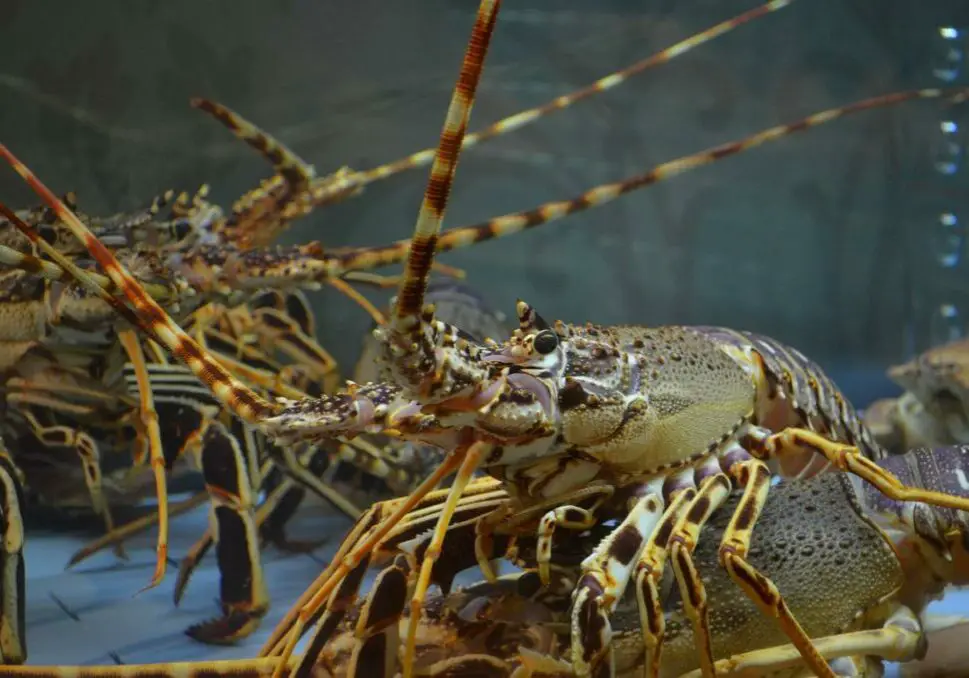Are Lobsters Immortal?
There is often a debate and confusion about lobsters being immortal. Biological immortality is the state in which death is not linked to chronological age, but can lobsters or any other animals live forever? In this blog post we’ll talk all about that but let’s begin with a quick answer:
Lobsters aren’t immortal but some species can live even over 100 years. They don’t age the way most animals do because they keep growing and reproducing all their life. However, this doesn’t mean they live forever and they usually die from exhaustion during the molting process.
However, this doesn’t tell the whole story. Below I’ll explain more about how old lobsters get, how to tell how old they are, and why lobsters live that long and age differently than us. Furthermore, I’ll explain why we often think lobsters are immortal, how they die, what’s the oldest lobster even found, and what animals are actually immortal, if any. Read on!
How old do lobsters get?
Lobsters aren’t immortal but some of them can have an extraordinarily long life span. For instance, the oldest lobster ever found was about 140 years! (You can read more about it below in the “What’s the oldest lobster?” paragraph).
But how old do they normally get? We’re still not quite sure how old exactly lobsters normally get. Some scientists say that the American lobster (Homarus americanus) can live 100 years and more. However, the Caribbean spiny lobster (Panulirus argus) typically lives for only 20 years.
The huge difference between species might be caused by the water temperature. The warmer water can cause faster metabolism which makes the aging faster. That’s why lobsters living in colder waters, such as the American lobster or European lobster can possibly live longer.
How to tell how old the lobster is?
Defining how old lobsters are can be pretty difficult. A lot of other animals have growth bands on their hard structures, such as bones or scales, and experts use them to determine their age. However, this method doesn’t really work for lobsters.
The reason for that is lobsters molt their shells approximately every year and don’t retain any hard structures. We also tried to determine their age by size and weight but it’s not a very reliable and accurate way to do it.
In this research, we tried to base lobsters’ age on fat residue on the eyestalks. Scientists think that older lobsters store more fat and according to this study, they found that male European lobsters can live to about 31 years old on average. Females, however, up to 54 with one female exception that had reached 72 years old.
The other method to determine lobsters’ age was discovered in 2018. The research demonstrated that direct age determination of lobsters is possible based on the growth rings on their teeth. Lobsters don’t have teeth in their mouth but in their stomach and are part of the structure, called gastric mil.
This method is possible because their teeth are preserved after molting. Thus, we can estimate lobsters’ age by counting their growth rings.
Why do lobsters live that long?
Even though lobsters aren’t immortal, their life span is still pretty impressive. Also, why do they age differently, constantly growing and reproducing even after they reach 100 years old?
One of the studies analyzed the American lobster and suggested that the reason lobsters age differently is their infinite supply of the telomerase enzyme throughout their cells. This enzyme is responsible for extending a cell’s life by regenerating telomers.
It puts off the biological aging (senescence), which is why lobsters continue to grow, reproduce, regenerate their limbs, and don’t weaken, even at high age. Other animals, including humans, also produce telomerase but for us, many cells lack telomerase activity which means the cell’s life can’t be extended like in lobsters’ case.
Why did we think lobsters are immortal?
Maybe you’ve heard that lobsters are immortal somewhere and that’s why you’re reading this post. So why is there a rumor about it? One of the reasons why people think lobsters are immortal is because they technically never stop growing.
Unlike many other organisms, including humans, they will keep growing until the end of their life. With each growth, they shed their shells (approximately once a year or two) as the shell can’t expand. Furthermore, they never stop growing but the rate at which they grow decreases with age.
Another reason why we thought lobsters are immortal is that they can reproduce in old age which is a very rare feature for animals. They reproduce sexually and the whole process takes actually about 2 years, and you can read more about it in my other article: “The Complete Life Cycle Of Lobsters (+ Reproduction)”.
How do lobsters die?
Interestingly, the most common reason for lobsters’ death is their process of growing, which is molting. When they get older, the process of getting out of their old shell requires more and more energy. They sometimes die during the process as they don’t have enough energy to complete it and die from exhaustion.
Other times, they leave their old shells for too long and it becomes weak and tattered until eventually become hosts to bacteria. This causes bacterial infections which create scar tissues that trap the bodies inside the shells like glue. The lobster end up stuck inside its own shell and eventually dies.
Would the lobster be immortal if it didn’t have to shed the shell? Who knows! Maybe it would, maybe it wouldn’t but we’ll probably never find out.
Other reasons for lobsters’ death are other diseases and predators. The number one predator of lobsters is humans and others are some species of fish, such as cod or haddock. Others are seals, other lobsters, eels, and more, depending on their environment.
Lobsters can also die in their fights. They often fight for the territory and privileges in their community, such as the best shelter or mating rights. These fights are pretty brutal and lobsters sometimes end up losing their appendages or they even die.
What’s the oldest lobster?
Interestingly, even though lobsters’ average lifespan is lower than humans, the oldest recorded lobster was definitely older than the oldest human who lived on this planet. It’s also important to note, that this is the oldest RECORDED lobster, because who knows what else hides in a big blue.
The oldest lobster was about 140 years which means he probably hatched in 1869. It was named George and was an Atlantic lobster, caught off the coast of Newfoundland, Canada, in 2008. He weighed 20 pounds (9.1 kg) which is a lot for a lobster but it’s definitely not the heaviest one.
After George was captured, the City Crab and Seafood restaurant in Park Avenue South bought him for US$100. Fortunately, the lobster wasn’t there to end up on somebody’s plate but (fortunately but unfortunately) ended up being an exhibition to bring more people to the restaurant.
As the restaurant manager said, “We never intended him to be sold, just draw attention to the restaurant, and he did.” However, after some time, two customers informed PETA – the animal rights group – about George being kept in the tank and they began fighting for his freedom.
After initially refusing to give the lobsters away, the manager later said that it is the right thing to do. A restaurant in Portsmouth, New Hampshire took George and helped him with experts to ease the transition to the wild.
Next, PETA members drove George to Maine in a cooler which helps lobsters to survive longer out of water. They drove to Main because this is where lobster fishing was forbidden. Eventually, after all George’s journey, he was released.
Are any marine animals immortal?
After we know that lobsters aren’t immortal, do you wonder if it’s possible if any of the marine animals can have this unique feature? Well, yes, there are animals that are biologically immortal.
One of them is the one that probably a lot of people would wish they wouldn’t even exist 🙂 It’s a jellyfish! Fortunately, not every jellyfish, but a Turritopsis doohmii species, known also as “the immortal jellyfish”. According to National Geographic, this jellyfish can literally reverse the aging process.
Turritopsis doohmii can transform its cells into a younger state when it’s injured or has a disease. This means it biologically returns to its polyp stage and begins to grow into adults again. This animal is the only one we’re sure it can be biologically immortal but there are many others we think they might be, but we still need more research on that.
Other animals that may not be immortal but whose life span is incredibly long (+200) are whales, tortoises, clams, and more.
Sources
- MRJ Sheehy, RCA Bannister, J F Wickins, and PMJ Shelton. New perspectives on the growth and longevity of the European lobster (Homarus gammarus). Canadian Journal of Fisheries and Aquatic Sciences. 56(10): 1904-1915. https://doi.org/10.1139/f99-116
- Gaya Gnanalingam, Mark J Butler, IV, Thomas R Matthews, Emily Hutchinson, Raouf Kilada, Directly ageing the Caribbean spiny lobster, Panulirus argus with validated band counts from gastric mill ossicles, ICES Journal of Marine Science, Volume 76, Issue 2, March-April 2019, Pages 442–451, https://doi.org/10.1093/icesjms/fsy177
- Klapper, Wolfram, Kühne, Karen, Singh, Kumud K, Heidorn, Klaus, Parwaresch, Reza and Krupp, Guido(1998), Longevity of lobsters is linked to ubiquitous telomerase expression, FEBS Letters, 439, doi: 10.1016/S0014-5793(98)01357-X
You may also like:

Welcome to Bubbly Diver!
I’m glad to see you here. This blog is created for all marine creature lovers by a bubbly diver - me, Dori :)


